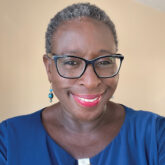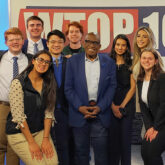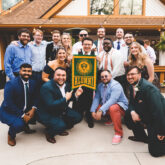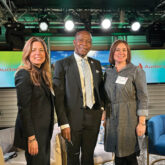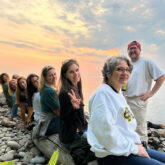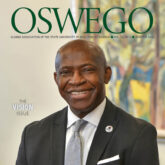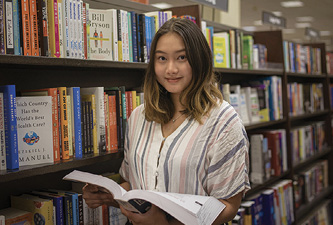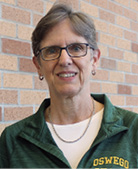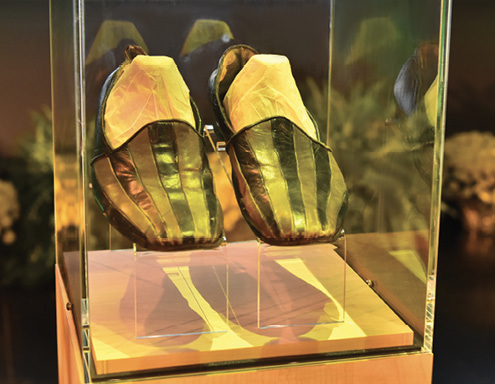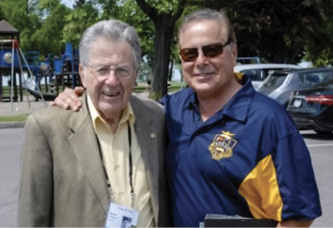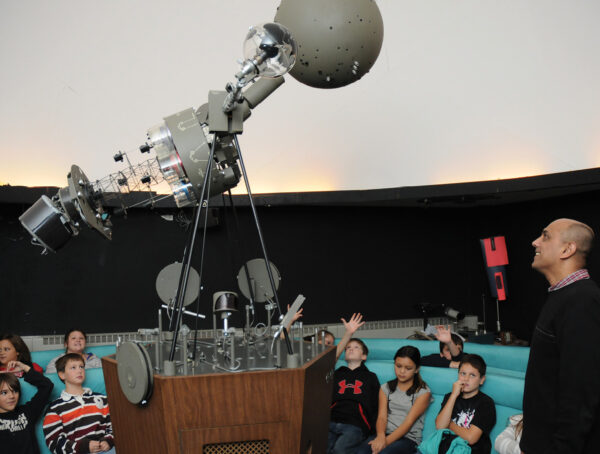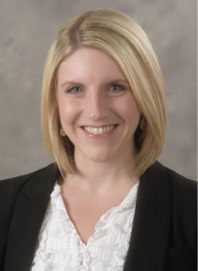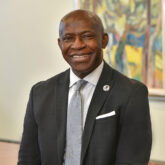The Last Word: Memories of My Alma Mater and My Mentor
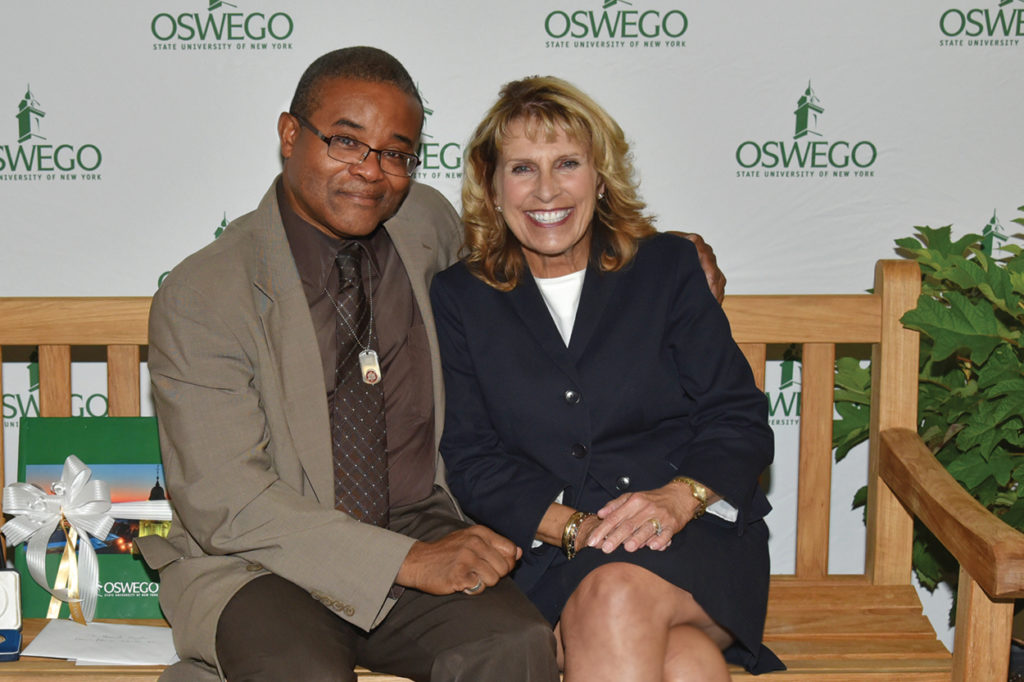
How does time race by all of us so quickly? What happened to all of those years? What year was it when Provost Deborah Stanley stopped me in the hallways of Culkin Hall to ask how I was doing?
“Just checking on you,” she told me.
Years are difficult to account for; they often blur and fade. However, memories among years can be as fresh and rewarding as this morning’s cup of coffee waiting for me on a table next to this laptop.
After graduating from SUNY Oswego, I initially felt a tiny bit of regret that my undergraduate rite of passage had come to such a swift end. All of my friends were moving on, physically leaving the campus and the city. I was not. My regret was not disappointment that I, too, had not packed my own books and bags for travel to some next destination. Instead, I was lost in thought about the end of dynamic communal experiences constructed by social groups I belonged to, groups that augmented the quality of life for so many of us during college.
Disconnecting from the special setting in which my peers and I thrived was inevitable. I knew the solidarity we created, the sense of wellbeing and fulfillment was over. School is school and work is work. Now, I would need a job.
All such memories remain fresh: Exchanging those final farewells—hugs and handshakes and promises to stay in touch with friends who headed toward their parents’ cars; walking slowly across the grass athletic field from commencement ceremonies at Romney Field House to the apartment on Fifth Avenue that I shared with the woman who would become my life partner; Eva, carrying our five-month-old son, Jumaane; and, my five-year-old sister, Shawn, holding my hand, while just behind us and in no real hurry to leave, our mother and father sauntered along, still glowing with pride and excitement over their son’s baccalaureate achievement. My thoughts about what the future held were briefly interrupted.
“Howard, are you coming back home to live with us again?” Shawn asked as she began skipping through the grass. She meant coming back to my hometown, Rochester, New York.
“Can’t,” I told her. “I believe I’ll still be right here in school, studying for a couple more years and working somewhere nearby.”
“More school in ’swego?”
Yes, more school and work could certainly play big roles in making that future less uncertain. Immediately ahead for me was the prospect of entering a graduate degree program (I was awaiting a decision from the English department) while simultaneously launching a search for employment.
At the time, I had no idea of the type work I might do, but I needed a job in a hurry. I had a couple interviews lined up for local part-time employment and a very simple plan for—to use the idiomatic expression—hitting the pavement. After weeks of dead ends, the late Anderson Mc-Cullough, an English department professor and a mentor, tried to reassure me. “Don’t worry yourself. You’ll find something. I’ve got a feeling you’re going to be around here for a long time.”
The next years sprinted by me. Eventually, I would have unexpected opportunities to participate in rich and meaningful work experiences at my alma mater, working as a counselor in the Educational Opportunity Program (EOP), as an assistant dean for arts and sciences, and as assistant provost for academic affairs. It was another mentor and friend, Betsy McTiernan ’69, who had encouraged me to apply for one of two EOP counselor openings.
“You should do this type of work,” she explained. “It’s important work for our students, and it will be good for us and for you.” Betsy was prophetic and absolutely correct.
Those particular memories are as vivid as an occasion more than two decades after commencement when President Deborah F. Stanley summoned me to her office. It was the day she would invite me to become her new executive assistant and special assistant to the president for social equity. Frankly, the job offer was a total surprise. I recall mumbling and fumbling words for a moment before saying anything coherent.
In earlier years, which now feel like they raced ahead of me, I had followed the President’s advice and occasionally stopped by her office to chat. It was not lost upon me that, long before her inauguration as the college’s tenth president, Deborah Stanley was one of those handful of colleagues and friends who took special interest in the personal growth and professional development of colleagues. She had genuine interest in me and my work.
“Tell me about your challenges,” she would ask. “What’s the latest project you’re working on? And, let me know what assistance you need in order to realize your goals.” Those talks never really concluded. In reality they were mentoring sessions and leadership lessons. President Stanley’s office was the classroom.
When the President offered me the position on that day in 1996, she explained that she was confident about the background, ability and skills I could bring to the “table,” as a senior administrator. And, she added, “I need you at that table.” She was processing ways to build a collective vision for transforming the institution—not only its facilities, teaching and living spaces, its enrollments and funding and everything that would make the college a special and vital setting for every student and employee.
Going forward, we must have had hundreds of discussions about social equity; hundreds more about recruitment and retention of students, faculty and staff of color; and far too many other talks and many lessons learned for me to attempt describing them in this small space. Of
course, she had hundreds and hundreds of talks with scores of other colleagues and stakeholders.
My 42 years of work at SUNY Oswego included the honor of serving 22 years as President Stanley’s executive assistant. What happened to all of those years? I can only tell you that all of the memories are fresh and rewarding. — Howard Gordon ’74 M’78
Howard Gordon ’74 M’78 retired in 2018 after 22 years as executive assistant to President Deborah F. Stanley, and is currently writing several books in his retirement.
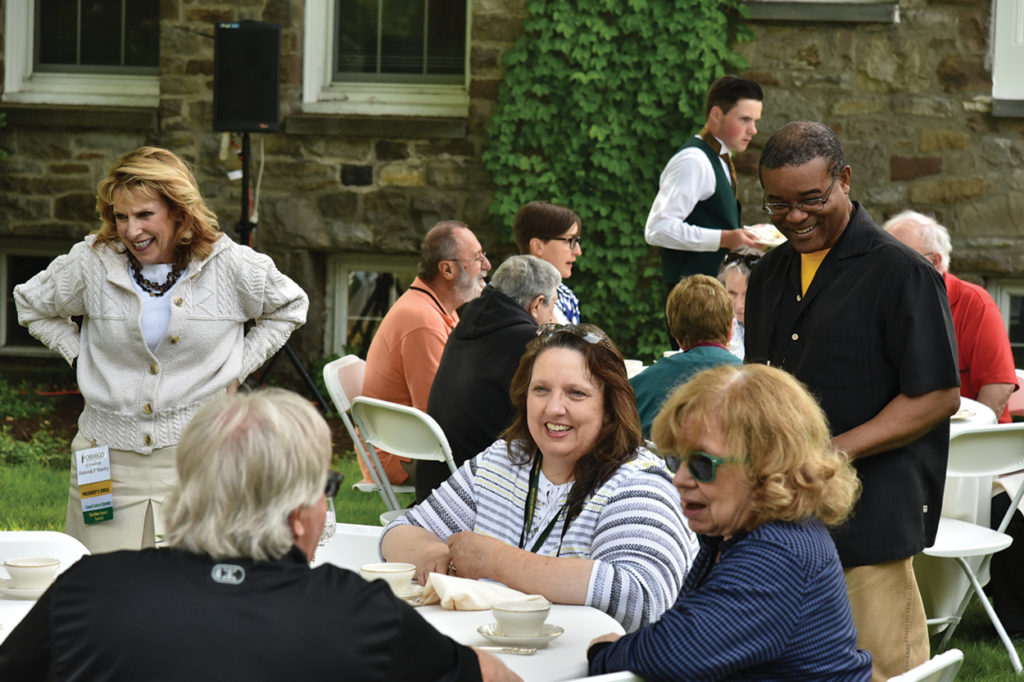
You might also like
More from Class Notes
Class Notes – Winter 2024
Class Notes - Winter 2024 Editor’s Note: Due to changes to our typical production schedule, this Class Notes reflects submissions from July …
From the Archives – Winter 2024
From the Archives - Winter 2024 SAVE THE DATE: April 8, 2024 Oswego will experience a very rare total eclipse of the …
Oswego Matters – Winter 2024
Oswego Matters - Winter 2024 As a mother of two young children, I’ve grown accustomed to frequent transitions; to new beginnings; …

